— Please tell us how you came to this position? What did you do before? What skills help you effectively perform your tasks?
— Before coming to this position, I worked on a volunteer basis at the Yunusabad district council of UzLiDeP. My candidacy was put forward by our teacher Dilbar Yusupova, the head of the party apparatus. After successfully completing training and tests, I was appointed as an assistant to the khokim. Prior to that, I was involved in entrepreneurship in the furniture manufacturing industry. The fact that I worked in business for over 10 years and am an economist allowed me to clearly fulfill the tasks assigned to me.
— Could you tell us more about the location of your mahalla, employment opportunities for the population? What information about the social composition and well-being of the population was obtained as a result of surveys conducted since the introduction of the "mahallabay" work system in 2022?
— My area of activity is Tashkent city, Yunusabad district, 9th quarter, "Sobirobod" mahalla. There are 52 business entities operating in our territory. The mahalla has leading entrepreneurs who are engaged in the export of adult and children's clothing, the production of paper and paper products, printing, outdoor advertising, and media services. The population is served by 4 social facilities, a boxing school named after Bakhodir Jalolov, 1 school, 1 preschool institution, and branches of commercial banks. As a result of going door-to-door, the social composition of the mahalla was fully studied, and households were divided into four categories. First of all, we started working with families in the 1st category, where living conditions are the most difficult.
— What are the main drivers and priorities for the development of your mahalla? What have you achieved in terms of improving the living conditions and well-being of the population during your first year in this position?
— From surveys conducted in the mahalla, it became known that the priority areas are trade and services. In my first year of work, 5 new business entities were created, in particular, a clothing workshop with 50 jobs, which was assisted in obtaining loans, employing residents of the mahalla, and provided practical assistance in legal and accounting matters.
— Please tell us in detail about the results of your activities in 2023. What do you consider the most important of what has been done?
— First of all, families who have lost breadwinners, low-income families, and those in need of social assistance, included in the "Iron Notebook," "Women Notebook," and "Youth Notebook" lists, were provided with computers based on subsidies, sewing machines, and work tools. Citizens from such families were trained, qualified, and employed. New business entities were created based on loans, resulting in 27 new permanent jobs. Training centers, e-sports centers, computer service centers, and a national confectionery workshop were also established in homes. One of the important things done for the well-being of our mahalla was the installation of 2 new transformers, which made the residents very happy.
— The transition from the "five" to the "seven" mahalla system has made life easier for people and more clearly distributed the work of mahalla employees. The presence of a tax officer in the mahalla allows residents to make all tax payments right here. The introduction of an order whereby 10% of all property and land tax revenues remain in the mahalla is a clear indication that our President pays great attention to the mahalla. Now the "seven" of the mahalla make collective decisions on the most important and pressing issues, and the mahalla having its own budget increases the effectiveness of our work.
— What are the priority tasks for the development of the mahalla this year?
— The development of small and medium-sized businesses in the mahalla is our priority. Based on Decree No. 306, we have set a goal to allocate preferential loans to entrepreneurs, open new business entities, and create numerous jobs on this basis. This year, 8 loans have already been allocated, 11 subsidies are in the process of being allocated, 131 citizens have become self-employed, and 32 people have been provided with permanent jobs.
— In your opinion, what else needs to be done to more effectively reduce poverty among the population?
— Everyone should have at least one profession. If they are a master of their craft, there are many opportunities and conditions for them to earn income. Many results can be achieved in a short period of time by identifying young people's aspirations and interests, guiding them towards relevant professions, and establishing a "mentor-student" tradition.
— How many households have been lifted out of poverty since the introduction of the position of assistant to the khokim?
— This is a very sensitive issue. But I can say that the subsidies provided by the state have already changed the living conditions and instilled hope for the future in 18 households from the "Sobirobod" mahalla, and the allocated preferential loans have helped more than 40 households.
— How many new enterprises have been created during your tenure as an assistant to the khokim? Please provide examples of successful entrepreneurial initiatives.
— The purpose of providing loans and subsidies is to stimulate the creation of new enterprises or expand existing ones to provide jobs for the population. During our work, together with the residents of the mahalla, we have successfully launched more than 20 private enterprises and more than 10 active legal entities. Thanks to my experience in entrepreneurship, I personally participated in opening new individual enterprises and legal entities, registering them through electronic platforms (name, obtaining a certificate, developing a charter, etc.).
Let me give you an example: after giving a young man named Bekzod a printer and a camera, he started working in the "Billur" banquet hall. He photographs guests at weddings, conducts photo sessions in parks, and in a short time was able to expand his business, hiring two neighbors as assistants and providing them with jobs. Currently, Bekzod is planning to open his own photo studio, and we are looking for opportunities to implement this project together. This case is far from unique.
— Are there experienced entrepreneurs in your mahalla, and how do you work with them? Can you give examples?
— Production activities always benefit society. Our President creates ample opportunities and conditions for the development of entrepreneurship. Together with the leading production facility in the mahalla, Quality Textile Production LLC, we have organized work on cooperation and employment of women. In addition, our entrepreneurs provide assistance to low-income families by distributing food and necessary equipment as charitable aid.
— What is being done in your mahalla to support citizens working abroad and encourage their return to their homeland?
— It would not be an exaggeration to say that this issue is one of the priorities for the whole of Uzbekistan. Currently, we are working with young people together with the "seven" of the mahalla to explain the current situation to them and involve leading entrepreneurs in solving this problem. If necessary, we train young people in various professions and prepare them for independent living. For example, we offered a young craftsman who gained experience in Russia to open his own business here and organize plumbing services. I am sure this will bring good results.
— Based on your practical experience as an assistant to the khokim, what suggestions can you make for further improving the activities of the assistants and increasing the effectiveness of their work in Uzbekistan?
— Assistants to the khokims should always be in search of new ideas and solutions. In addition, I believe that to gain experience, it is necessary to undergo short-term internships abroad and organize a rotation of the assistants in the districts and cities where they work.
— Do you have enough resources to develop the mahalla? What kind of help do you need as an assistant to the khokim?
— Currently, assistants to the khokims have all the necessary resources, opportunities, and conditions. However, additional financial instruments could significantly improve the effectiveness of the assistant to the khokim institution.
— How has the attitude of mahalla residents towards the ongoing reforms changed? What new goals and plans have you set for yourself in the near future?
— I must admit that in the mahalla, I learned how to work, gained experience, and found my place. The public opinion about the mahalla has changed, and people have gained confidence in the ongoing reforms and the state. In the near future, I plan to apply the knowledge and skills acquired in this mahalla at the district and city levels.
Jamoliddin Turdimov, CERR
"Economic Review" Journal №5/2024




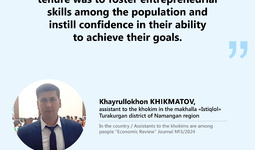
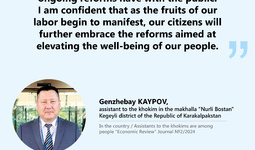
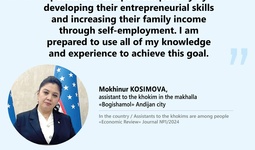
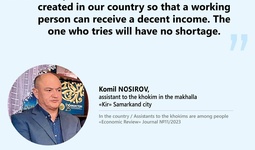






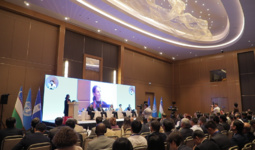


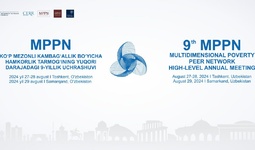


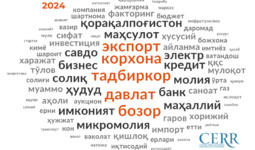
leave a comment